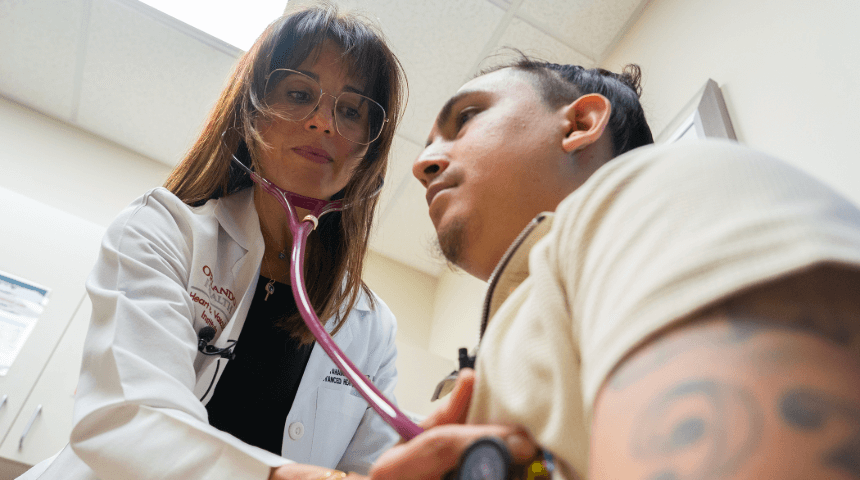Heat, Humidity and Your Heart
Even if you’re an elite athlete in perfect health, your heart works harder and is more vulnerable on hot, humid days. For people with a history of heart problems, the risk is much greater.
How do heat and humidity affect your heart, and what should you do to protect yourself during hot weather?
Your Heart Works Harder in Hot Weather
When your body temperature starts to rise, your cardiovascular system kicks into high gear. Your heart beats faster and pumps harder to circulate more blood through your body, especially to the skin, to cool you down.
Another way the body regulates temperature is through sweating, which can also put a strain on your cardiovascular system. Sweat contains electrolytes, essential minerals like potassium and sodium that are necessary for healthy heart function. Excessive sweating during hot weather can throw your electrolyte levels out of balance, which can further stress a heart that’s already working hard to keep you cool.
Sweating also can cause dehydration, which might drop your blood pressure and leave you feeling woozy. Even mild dehydration (a loss of as little as 1 percent of body weight) can cause symptoms like dizziness, weakness and fatigue.
Take Precautions To Protect Your Heart
Even people with perfectly healthy hearts can run into trouble when temperatures rise, so it’s important to take precautions to protect your heart when outside in hot weather. On hot and humid days, make sure to:
● Drink plenty of fluids
Keeping your body hydrated helps your heart pump blood more easily, so this is one of the most important heart-protecting precautions you can take in hot weather. The recommended amount of fluid you should drink every day varies according to circumstances like age, gender and activity level, so experts advise using the color of your urine as a guide. If it’s pale yellow, you’re well hydrated; if it’s dark and concentrated, you need more fluids.
● Dress for the weather
What you wear has a big impact on your body’s ability to regulate temperature. Choose breathable, light-colored fabrics and wear a hat to block the sun. Well-ventilated shoes and moisture-wicking socks also are a good choice to help absorb sweat.
● Take it easy
If you’re exercising outside on a hot and steamy day, don’t push yourself too hard. Overexertion can put excessive strain on your heart.
● Stick to morning and evening exercise
It’s best to avoid outdoor physical activity during the hottest part of the day, so try to schedule your workouts and outings before breakfast or during sundown.
● Bring a friend
Not only is it more fun to work out with a buddy, it’s also a lot safer. If you or your friend overheat, you’ll be able to help each other out.
Heart Condition? Stay Out of the Heat
People with cardiovascular conditions like heart disease need to be extra careful about staying cool in hot weather. If you have a history of heart problems or take medications like diuretics that can increase your risk of dehydration, check with your doctor before starting a new fitness routine. Once you’re cleared to exercise, consider seeking out indoor recreation facilities on hot and humid days.
Choose to Stay in Touch
Sign up to receive the latest health news and trends, wellness & prevention tips, and much more from Orlando Health.
Sign Up





